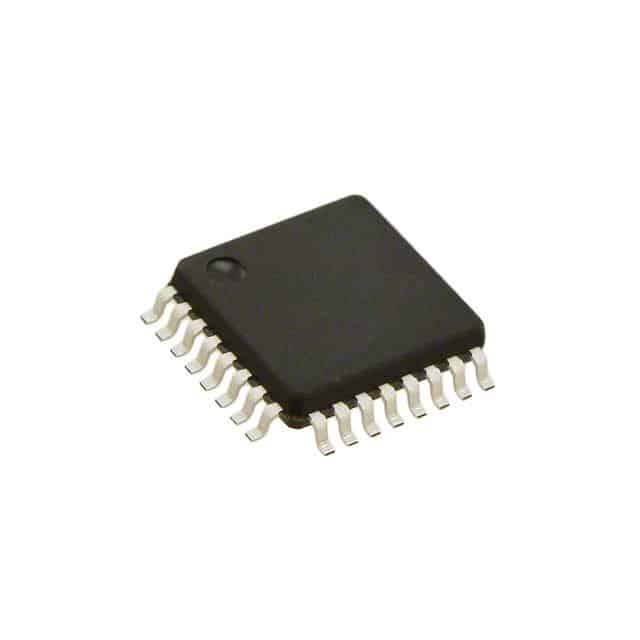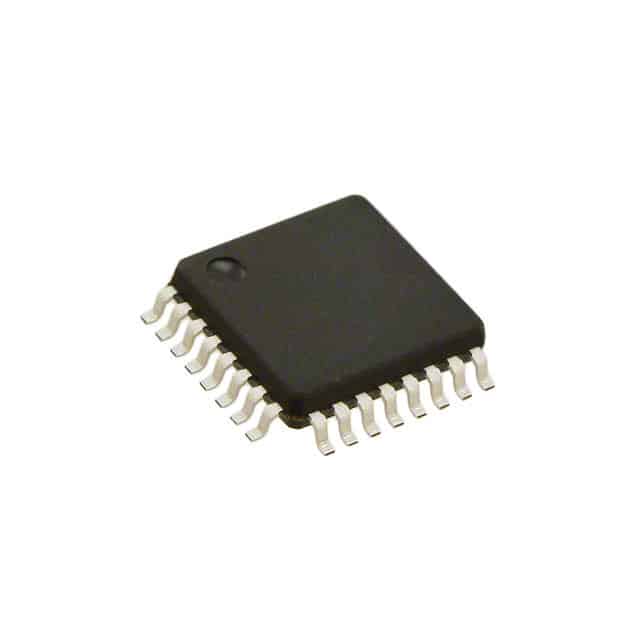
The MC9S08FL16CLC microcontroller, developed by NXP, is integral to automotive systems. This 8-bit microcontroller is distinguished by its high-performance CPU and extensive peripherals, making it ideal for embedded control applications within automotive systems. Its robust design ensures reliability in demanding environments, while its low power consumption enhances efficiency. Automotive systems benefit significantly from these features, as they require precise control and durability. The MC9S08FL16CLC’s versatility extends to various applications, including engine control and safety systems. For more detailed specifications, visit https://www.alldatasheet.com/datasheet-pdf/view/52.
Key Features of the MC9S08FL16CLC
Technical Specifications
The MC9S08FL16CLC microcontroller stands out with its impressive technical specifications. It operates at a frequency of 20 MHz, providing the necessary speed for various automotive applications. The microcontroller includes 8 KB of flash memory, which allows it to store essential programs and data efficiently. Additionally, it features a high-performance CPU that ensures quick processing and response times. These specifications make the MC9S08FL16CLC a reliable choice for embedded control applications in the automotive industry.
Advantages in Automotive Applications
Power Efficiency
Power efficiency remains a critical factor in automotive systems. The MC9S08FL16CLC excels in this area by consuming minimal power while maintaining high performance. This efficiency helps in reducing the overall energy consumption of vehicles, contributing to better fuel economy and lower emissions. Automotive engineers value this feature as it aligns with the industry’s push towards more sustainable and eco-friendly technologies.
Robustness and Reliability
Automotive environments demand robust and reliable components. The MC9S08FL16CLC meets these demands with its durable design. It withstands harsh conditions such as extreme temperatures and vibrations, ensuring consistent performance. This reliability is crucial for safety-critical applications like engine control and airbag deployment systems, where failure is not an option.
Compatibility with Automotive Standards
Compatibility with automotive standards is another significant advantage of the MC9S08FL16CLC. It integrates seamlessly into existing automotive platforms, adhering to industry norms and protocols. This compatibility simplifies the design process for engineers, allowing them to focus on innovation rather than integration challenges. The microcontroller’s architecture supports various communication interfaces, making it versatile for different automotive applications.
For more detailed specifications and information, visit https://www.alldatasheet.com/datasheet-pdf/view/52.
Applications in Automotive Systems
The MC9S08FL16CLC microcontroller, developed by NXP, plays a pivotal role in various automotive systems. Its versatility and robust design make it suitable for numerous applications, enhancing the functionality and safety of modern vehicles.
Engine Control Systems
Engine control systems require precise and reliable components to manage engine performance effectively. The MC9S08FL16CLC excels in this domain due to its high-performance CPU and efficient processing capabilities. It manages tasks such as fuel injection, ignition timing, and emission control. These functions are crucial for optimizing engine efficiency and reducing environmental impact. The microcontroller’s ability to handle complex calculations ensures that engines operate smoothly and efficiently, contributing to improved vehicle performance.
Infotainment Systems
In the realm of infotainment, the MC9S08FL16CLC offers significant advantages. It supports various communication interfaces, allowing seamless integration with audio, video, and navigation systems. This microcontroller enhances user experience by providing quick response times and reliable connectivity. Infotainment systems benefit from its low power consumption, ensuring that entertainment features do not drain the vehicle’s battery. As a result, passengers enjoy a more engaging and enjoyable journey.
Safety and Security Features
Safety and security remain paramount in automotive design. The MC9S08FL16CLC contributes to these aspects through its application in critical safety systems.
Airbag Deployment Systems
Airbag deployment systems rely on precise timing and reliability. The MC9S08FL16CLC ensures that airbags deploy at the right moment during a collision, minimizing injury risk. Its robust design withstands harsh conditions, maintaining consistent performance when it matters most. This reliability is essential for protecting passengers and enhancing vehicle safety.
Anti-lock Braking Systems (ABS)
Anti-lock braking systems (ABS) prevent wheel lock-up during sudden braking, maintaining vehicle control. The MC9S08FL16CLC processes sensor data rapidly, adjusting brake pressure to prevent skidding. This microcontroller’s quick response time and efficient processing ensure that ABS functions effectively, providing drivers with greater control and safety on the road.
For more detailed specifications and information about the MC9S08FL16CLC, visit https://www.alldatasheet.com/datasheet-pdf/view/52.
Comparison with Other Microcontrollers
When evaluating the MC9S08FL16CLC microcontroller, it is essential to compare it with other popular 8-bit microcontrollers like the ATmega8A and STM8S003F3P6. Each of these microcontrollers offers unique features and performance metrics that cater to different automotive applications.
Performance Metrics
The MC9S08FL16CLC operates at a frequency of 20 MHz, providing a robust processing capability for automotive tasks. In comparison, the ATmega8A runs at a maximum of 16 MHz, while the STM8S003F3P6 reaches up to 16 MHz as well. The higher frequency of the MC9S08FL16CLC allows it to handle more complex computations and control tasks efficiently. Additionally, the MC9S08FL16CLC includes 8 KB of flash memory, which is comparable to the ATmega8A’s 8 KB but exceeds the STM8S003F3P6’s 8 KB. This additional memory capacity supports more extensive program storage and data handling, enhancing its utility in demanding automotive environments.
Cost-Effectiveness
Cost plays a crucial role in selecting microcontrollers for automotive systems. The MC9S08FL16CLC offers a balance between performance and affordability, making it a cost-effective choice for many applications. The ATmega8A, known for its widespread use and availability, provides a competitive price point, while the STM8S003F3P6 is often favored for its low-cost advantage. However, the MC9S08FL16CLC’s superior processing power and memory capacity justify its slightly higher cost, especially in applications where performance cannot be compromised.
Ease of Integration
Integration into existing automotive systems is a critical consideration for microcontroller selection. The MC9S08FL16CLC excels in this area due to its compatibility with various automotive standards and communication interfaces. This compatibility simplifies the integration process, allowing engineers to incorporate it seamlessly into their designs. The ATmega8A and STM8S003F3P6 also offer ease of integration, but the MC9S08FL16CLC’s architecture provides a more versatile platform for diverse automotive applications. Its ability to support multiple interfaces ensures that it can adapt to different system requirements, enhancing its appeal to automotive engineers.
For more detailed specifications and information about the MC9S08FL16CLC, visit https://www.alldatasheet.com/datasheet-pdf/view/52.
Benefits of Using MC9S08FL16CLC
Enhanced Vehicle Performance
The MC9S08FL16CLC microcontroller, developed by NXP, significantly boosts vehicle performance in automotive systems. Its high-performance CPU and extensive peripherals enable precise control over various vehicle functions. This microcontroller efficiently manages engine operations, such as fuel injection and ignition timing, ensuring optimal engine performance. By processing data swiftly, it enhances the responsiveness of the vehicle, leading to smoother acceleration and improved fuel efficiency. The robust design of the MC9S08FL16CLC ensures consistent performance even in demanding environments, making it a reliable choice for enhancing vehicle dynamics.
Improved Safety Features
Safety remains a top priority in automotive systems, and the MC9S08FL16CLC plays a crucial role in this aspect. Its application in safety-critical systems, like airbag deployment and anti-lock braking systems (ABS), underscores its importance. The microcontroller’s rapid processing capabilities ensure that airbags deploy at the precise moment during a collision, minimizing injury risk. In ABS, it processes sensor data quickly to adjust brake pressure, preventing wheel lock-up and maintaining vehicle control. These features contribute to enhanced safety, providing drivers and passengers with greater protection on the road.
Cost Savings in Production
Incorporating the MC9S08FL16CLC into automotive systems offers significant cost savings in production. Its cost-effectiveness stems from its balance of performance and affordability. The microcontroller’s compatibility with various automotive standards simplifies integration, reducing development time and costs. Additionally, its low power consumption contributes to lower energy costs, aligning with the industry’s push towards more sustainable technologies. By choosing the MC9S08FL16CLC, manufacturers can achieve high performance and reliability without incurring excessive expenses, making it an economically viable option for modern automotive designs.
Limitations and Challenges
Potential Drawbacks
The MC9S08FL16CLC microcontroller, while advantageous, presents certain drawbacks. Its 8-bit architecture limits its processing power compared to more advanced 16-bit or 32-bit microcontrollers. This limitation affects its ability to handle complex computations and multitasking in high-demand applications. Additionally, the microcontroller’s memory capacity, though sufficient for many tasks, may not meet the needs of applications requiring extensive data storage or processing. Engineers must carefully assess these limitations when considering the MC9S08FL16CLC for specific automotive applications.
Industry Challenges
The automotive industry faces several challenges when integrating microcontrollers like the MC9S08FL16CLC. Rapid technological advancements demand continuous updates and improvements in microcontroller design. Manufacturers must keep pace with evolving standards and protocols to ensure compatibility and performance. Furthermore, the push towards electric and autonomous vehicles introduces new requirements for microcontrollers, such as enhanced processing capabilities and energy efficiency. These industry trends necessitate ongoing research and development to address emerging needs and maintain competitiveness.
Future Trends in Automotive Microcontrollers

Emerging Technologies
The automotive industry is witnessing a surge in emerging technologies that are reshaping the landscape of microcontrollers. Advanced Driver Assistance Systems (ADAS) stand at the forefront, incorporating features like automatic emergency braking, lane departure warning, and collision avoidance. These systems rely heavily on sophisticated microcontrollers to process data swiftly and accurately, ensuring enhanced vehicle safety and performance.
Artificial Intelligence (AI) integration into automotive microcontrollers marks another significant trend. AI enhances the decision-making capabilities of vehicles, allowing for real-time data analysis and adaptive responses to changing driving conditions. This integration not only improves safety but also optimizes vehicle efficiency, contributing to a more intelligent and responsive driving experience.
The global automotive microcontroller market is poised for substantial growth, with an estimated value of $9.9 billion by 2028. This growth is driven by the increasing demand for safety features and the adoption of capacitive touch sensing technologies. As vehicles become more connected and autonomous, the role of microcontrollers in managing complex electronic systems will continue to expand.
Evolution of Automotive Systems
Automotive systems are evolving rapidly, driven by technological advancements and changing consumer expectations. The shift towards electric and autonomous vehicles is transforming the design and functionality of automotive microcontrollers. These vehicles require microcontrollers with enhanced processing power and energy efficiency to manage intricate systems and ensure seamless operation.
The U.S. market, in particular, is experiencing significant growth in automotive technology, with a projected CAGR of 6.6% from 2024 to 2034. This growth is fueled by innovations in vehicle connectivity, infotainment, and telematics systems. Microcontrollers play a crucial role in these advancements, enabling seamless communication between various vehicle components and external networks.
As automotive systems continue to evolve, microcontrollers must adapt to meet new challenges and opportunities. The integration of AI, increased connectivity, and the push towards sustainability will shape the future of automotive microcontrollers, driving innovation and enhancing the overall driving experience.
The MC9S08FL16CLC microcontroller, developed by NXP, significantly impacts automotive systems with its robust design and high performance. It enhances vehicle functionality by providing reliable control over critical systems like engine management and safety features. This microcontroller’s versatility makes it a valuable asset in various automotive applications. Looking ahead, the integration of emerging technologies such as AI and advanced driver assistance systems will further elevate the role of microcontrollers in automotive innovation. As the industry evolves, the MC9S08FL16CLC will continue to play a pivotal role in shaping the future of automotive technology.
See Also
Unveiling MC9S12DJ256MFUE Specs for Auto Use
Key Automotive Features of FREESCALE MCF5251CVM140
Essential Programming Tips for MC9S12XD256 Controllers
Three Effective Methods to Integrate MC9S12XET512VAG
Key Specifications of MC9S12XEQ512CAL Uncovered

